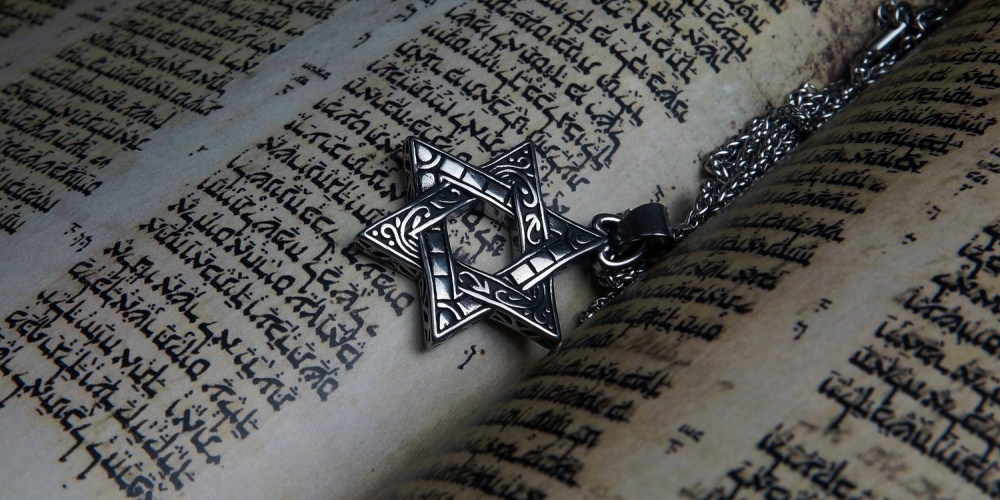
One of the teachings that is ingrained in us from a young age is that every letter, and surely every verse and story, found in the Torah is of great significance. We have elsewhere discussed that this premise is far from unanimous, with some of the greatest rabbis throughout the ages maintaining that “the Torah speaks in the language of men” (see, for example, here) and hence, not every word is necessarily of great significance.
Furthermore, at least some who make this claim do not actually seem to believe it in practice. How many people study in depth Chapter 36 of Breisheet—the one with 43 verses listing the wives and descendants of Eisav? Quick now, how many of Eisav’s grandchildren can you name? And what about the 12 children of Nachor, or the long lists of genealogies that take up some 25% of parshiot Breisheet and Shemot[1]? And for good reason. If the Torah is a book of values, laws, and morals, with the goal of making us “a holy nation”, do we really need to know that “the sister of Tuval Cain was Naamah” (Breisheet 4:22)? These questions can be asked about much of the Torah, though expressing this openly is (quite sadly, I would argue) something that is not welcome in many circles.
The Sages of the Talmud, however, had no compunction raising the issue.
Reish Lakish—who, a few short lines earlier, argued that G-d needs monthly atonement for the sin of diminishing the moon—said: “There are many verses [in the Torah] which ought to be burnt, and [yet] they are the essence of Torah” (Chulin 60b)!
When one studies Talmud, one is taught that even a hava aminah, a rejected idea, is worthy of study. We must thus attempt to understand how one can even raise the notion of expunging parts of the Torah. But this is that which Reish Lakish forces us to grapple.
Rashi explains that it is disrespectful to the holiness of the Torah to include such mundane verses in Torah. How can we, “in one breath”, enumerate the kings of Eisav while re-enacting G-d’s revelation to man? How dare we sully the pristine nature of Torah with so much information about idolaters? So inappropriate is this mixture that these verses should have been “burned.” Yet Reish Lakish teaches that in fact, “they are the essence of Torah”.
As an example of a verse that was worthy to be burned but is the essence of Torah, Reish Lakish cites the following: “It is written: And the Avvim that dwelt in villages as far as Gaza; the Caphtorim, who came forth of Caphtor, exterminated them, and dwelt in their stead” (Devarim 2:23).
I am not sure what is more radical—claiming we ought to burn verses of the Torah, or claiming that the essence of the Torah is the battle between the Avim and the Caphtorim.
The Gemara explains that this verse actually grants the Jewish people the right to live in the Land of Israel. Many years earlier, Abraham had entered into a peace treaty with Avimelech, the king of the Philistines, and swore that he “will not lie to me [Avimelech] or to my son or to my grandson; according to the kindness that I have done with you, you shall do with me, and with the land wherein you have sojourned” (Breisheet 212:23). As the Avim were descendants of the Philistines, the land could not be conquered directly from them. However, once the Caphtorim conquered the land from the Avim, the Israelites could then conquer it without worrying that they were taking it from the descendants of Avimelech, thereby violating Abraham’s promise.
Far from describing some ancient history about no-longer-existent peoples, this verse contains the key to the Jewish settlement of the land. And as Rashi notes in his opening line of his commentary to the Torah, the first message of the Torah is that the Land of Israel belongs to the Jewish people. This verse may not be as inspiring as that of “loving your neighbour as yourself” but it enabled us morally to claim our land—and better observe so many mitzvot.
Yet perhaps this verse— one that is the “essence of Torah—contains a deeper message.
Was it really necessary to have the Caphtorim capture the land from the Philistines before the Jewish people could capture it? The Philistines broke their side of the covenant when they attacked the Jewish people, thereby freeing us from our obligations towards them.
Nonetheless, the children of Abraham would apparently have upheld their part of the covenant had the land remained under the sovereignty of the Philistines. Hence, the crucial importance of the Caphtorim capturing the land.
Reish Lakish teaches the importance of both our moral and legal obligations. While it is expected (but all too often, our expectations are dashed) that one not use a legal technicality to avoid a moral obligation, one should also not use a moral argument to avoid a legal obligation[2]. The Jews had every moral right to conquer land from the Philistines. But they felt bound by their word. We do not judge ourselves by the standards of others; we demand more of ourselves even if such is a double standard. While the Philistines may have acted as if the agreement between Abraham and Avimelech had long been negated, the Jewish people were unwilling to do the same.
When all is said and done, Reish Lakish upholds the principle that every verse and every piece of information in the Torah is important. Yet he is unafraid to acknowledge the difficulty of maintaining such a position, as much of the Torah seems rather unholy and far from offering moral guidance. Yet a message there must be. It may take hundreds, or even thousands of years for aspects of the Torah to become clear, but with the passage of time, that which was once opaque will become clarified.
Our generation has been fortunate to have access to new tools—historical, literary, archaeological, and scientific—that have allowed deeper understanding of our holiest of texts, uncovering meaning that we did not know existed.
Furthermore, we are the generation blessed to bear witness to the fulfilment of prophecies thousands of years old. Had these prophecies been expunged from our texts in the midst of Jewish suffering, would it have mattered? They were so unrealistic as to be laughable. Yet today, these verses have breathed new life into our people, and can readily be described as “the essence of Torah”.
[1] Rabbi Dr. Zvi Grumet in his introductory remarks to his excellent work Genesis: From Creation to Covenant (Koren, 2017) notes that he was once asked to teach sefer Breisheet at a local synagogue. He was told, “Of course, you will begin with Lech Lecha" (G-d’s call to Abraham); apparently there was no need to study the first 11 chapters of the Torah as these pre- Abraham chapters were viewed as irrelevant.
[2] Of course, in situations where it is morally obscene to follow the law, one must break it. But thankfully, such situations are few and far between.



